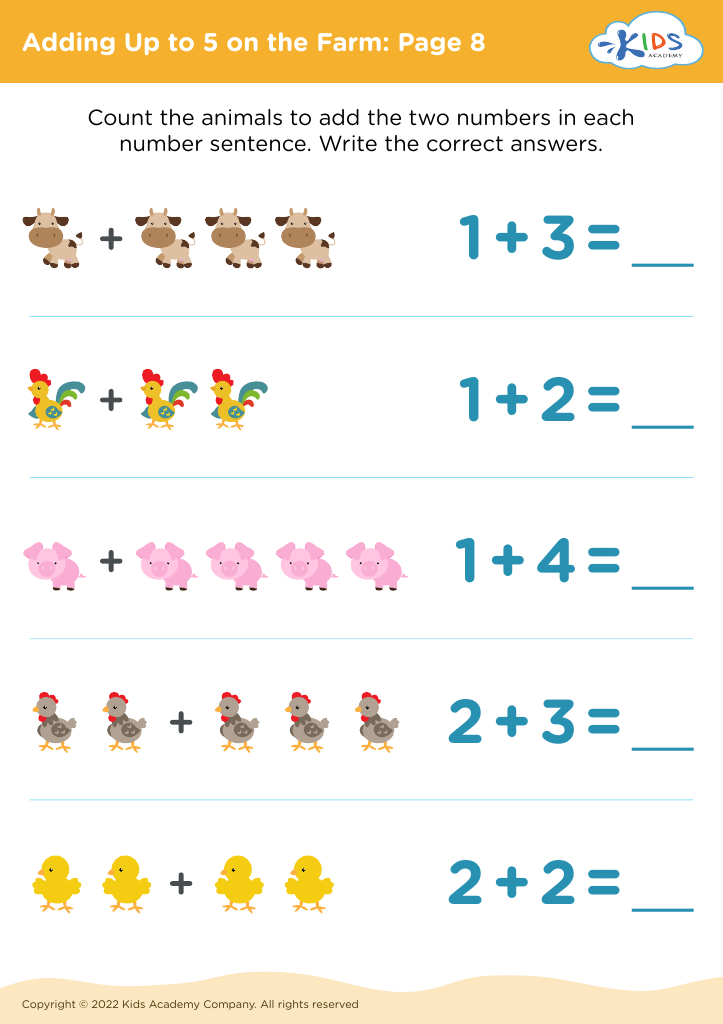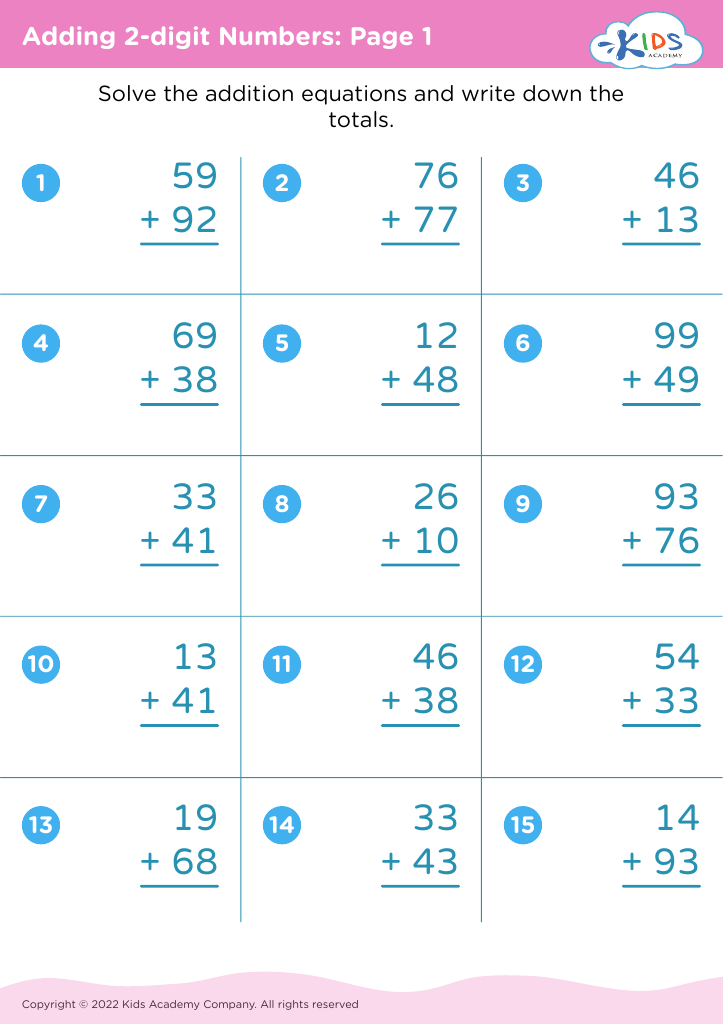Developing counting skills Addition Worksheets for Ages 4-8
3 filtered results
-
From - To
Enhance young learners' numerical abilities with our Developing Counting Skills Addition Worksheets for ages 4-8. These engaging worksheets are expertly crafted to help children master basic addition, offering a fun and effective way to boost their counting skills. Designed with vibrant illustrations and interactive exercises, our worksheets guide kids through the process of adding numbers in a clear and enjoyable manner. Whether they are beginners or looking to improve, these activities are perfect for laying a strong mathematical foundation. Ideal for home or classroom use, our addition worksheets support your child's journey to becoming a confident math learner.
Developing counting and addition skills in children aged 4-8 is crucial for several reasons. Firstly, these foundational math skills form the building blocks for more complex mathematical concepts they will encounter later in their education. Understanding basic addition boosts computational fluency, which is vital for solving everyday problems and more advanced subjects like algebra and geometry.
Early skill development helps to build a child's confidence in their abilities, fostering a positive attitude towards mathematics. It's well-documented that early experiences shape attitudes towards learning; if children struggle early on, they may develop math anxiety which can have long-term effects on their academic performance.
Moreover, counting and addition are essential life skills. They are used in a variety of daily contexts such as telling the time, counting money, and understanding sequences. Developing these skills early equips children with the tools they need to handle these everyday tasks confidently and competently.
Teachers and parents play a pivotal role in supporting this development. Through engaging activities, like counting games and interactive math stations, they can create an enjoyable learning experience. Early intervention not only enhances cognitive development but can also lead to greater academic success, providing children with a robust foundation for lifelong learning.























